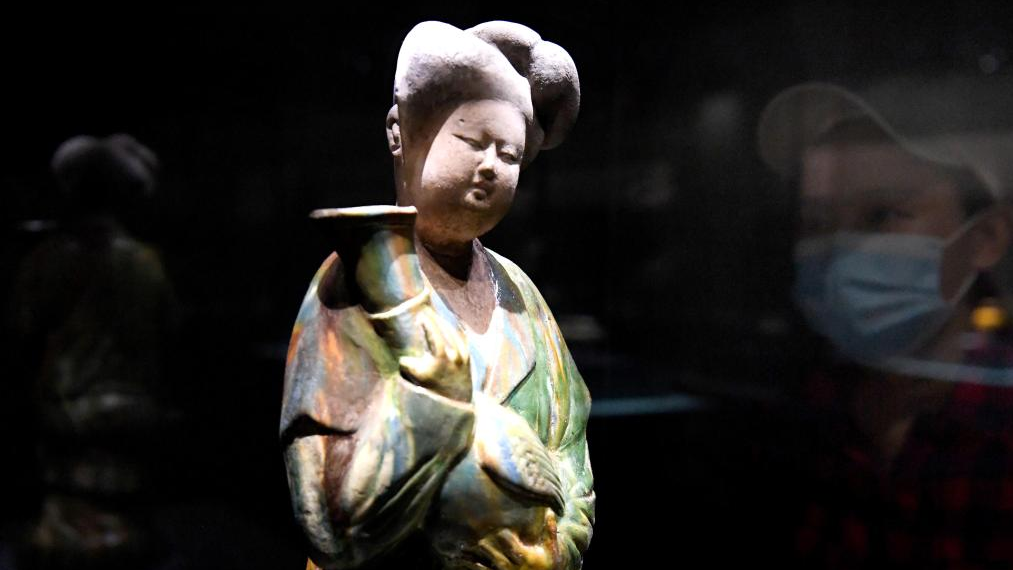How U.S. "democracy" fails in Iraq, Libya
CAIRO, Sept. 1 (Xinhua) -- Iraq and Libya, into which the United States has attempted to transplant its "democracy," have recently witnessed deadly political clashes that killed dozens of people.
The clashes took place when political impasses in both countries have lasted for months or even years, proving once again the failure of "American-style democracy" in the Middle East.
A DEMOCRACY NOT FIT
Thousands of powerful Shiite cleric Moqtada al-Sadr's supporters stormed major Iraqi government buildings in Baghdad on Monday following their leader's announcement that he was quitting politics.
The clashes between the protesters and rival factions killed at least 22 people and wounded more than 200 others, the Iraqi military said on Tuesday.
The chaos was nothing new. Ever since Saddam Hussein's government was toppled by the U.S.-led coalition in 2003, Iraq has been mired in political chaos, and the peace and democracy promised by Washington has never been delivered.
By destroying Iraq's original state apparatus by force, the United States has weakened the Iraqi government's ability of governance and provided space and conditions for terrorism to expand.
"The core of the Iraqi problem is the political system that the U.S. administration established on the wrong foundations. It deliberately divided the Iraqi people into sectarian and ethnic grounds and abolished the principle of citizenship that led to making Iraq a state of components," said Mohammed al-Jubouri, a professor of media at the al-Iraqia University.
The customs, traditions and culture of Iraqis differ from those of the West, so imposing on Iraq the Western-style democracy was "a mistake," he said.
AN INTERVENTION NOT WELCOMED
The same is true for Libya. In 2011, the United States and its allies, in the name of bringing a brighter future, launched an operation coded Odyssey Dawn to overthrow Libyan late leader Muammar Gaddafi.
However, the military intervention has since only plunged Libyans into an abyss of greater economic and security darkness.
"The Western intervention in Libya and the U.S.-led operation in 2011 were a complete conspiracy ... because the regime was changed by force, not by the willingness of the people," Faraj al-Dali, a Libyan political analyst, told Xinhua.
"That is how we have fallen into an unpredictable cycle of civil war," he said.
"The United States ... always tries to impose its own democratic system on others" but turns a blind eye to major deficiencies in such a system, al-Dali noted.
Abdullah Al-Rais, a Libyan political analyst, told Xinhua, "Washington repeatedly talks about its support for the Libyans and the establishment of a unified and strong political system, but the truth is that it supports the division and the state of rivalry between political leaders and fuels division and certain groups."
A SCHEME DISGUISED
The United States invaded Iraq under the pretext of protecting "human rights" and "democracy," yet its ulterior motive is nothing but grabbing wealth and petroleum resources from Iraq and consolidating its hegemony in the Middle East.
Before the 2003 invasion, Iraq's domestic oil industry was fully nationalized and closed to Western oil companies. Nearly two decades after the war, foreign firms have dominated the Iraqi oil sector.
A study by the Center for Public Integrity found that after donating over half a million dollars to the presidential campaigns of former U.S. President George W. Bush, more than 70 American companies and individuals won up to 8 billion dollars worth of contracts for work in postwar Iraq and Afghanistan.
The United States also attempts to establish fragile and dependent governments in the region to serve its global hegemony.
According to a report titled U.S. Commits Serious Crimes of Violating Human Rights in the Middle East and Beyond, recently released by the China Society for Human Rights Studies, Washington's essential goal is to maintain America's military, economic and conceptual hegemony, "which in consequence has altered the independent development paths of regional countries and severely undermined the sovereignty of related countries in the Middle East as well as their people's rights to development and health."
A DAMAGE TO REPAIR
The years-long wars launched by the United States in the two countries have seriously violated the basic human rights of the people in the region.
According to Statista, a global statistical database, from 2003 to 2021, about 209,000 Iraqi civilians died in wars and violent conflicts, and about 9.2 million Iraqis became refugees or were forced to leave their homeland.
What happened in Libya is also lamentable. Blessed by rich hydrocarbon resources and a strategic location, Libya was once a wealthy country, with its GDP per capita exceeding 12,000 U.S. dollars in 2010.
For the past 11 years, political turmoil and armed conflicts have haunted the North African country, leaving its people in pervasive insecurity and hardship.
In 2021, the GDP per capital in Libya was 6,018 dollars, only half of the pre-war time.
"Every state of insecurity is the responsibility of the Western countries, especially the United States, which has caused the collapse of any chance of political stability in Libya," said Al-Rais.
Photos
Related Stories
- U.S. Indo-Pacific policy "flawed," not fit for region's stability: scholar
- Vulnerable people suffer more as Americans ditch COVID measures: The Guardian
- U.S. economy to have one "whopper" of recession in 2023: scholar
- Dutch gov't concerned about U.S. gun violence after soldier's killing: The Washington Post
- U.S. private sector sees slower job growth in August as hiring shows signs of cooling
- Black Americans see racism as persistent challenge: poll
- Life expectancy in U.S. continues to drop, driven by COVID-19: NPR
- Over quarter of U.S. adults say they fear being attacked in neighborhood: survey
- Opinion: U.S. is squandering the faith of its people
- UN committee warns of significant increase in hate crimes in U.S.
Copyright © 2022 People's Daily Online. All Rights Reserved.









